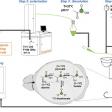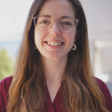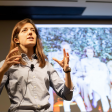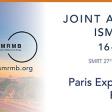As a QBI investigator, Myriam Chaumeil, PhD was interviewed by Alexa Rocourt in December 2017.
Q: In a couple sentences, tell me about what you do in your work.
We are developing better and faster ways to image the brain and the way it works using new MRI methods, in order to improve patient care. The technology we use is called (hyperpolarized C13). UCSF was one of the first institution in the world to start using it, which is why I came here.In my lab, one of our focus is Traumatic Brain Injury, in collaboration with Professor Rosi. When you get hit on the head, like after a fall for example, and go get an MRI, doctors look at it and tell you that you have a concussion. But whether it will have a consequence in the long-run is impossible to tell using regular MRI. If you get multiple concussions at a young age, you have more chances to develop cognitive issues, and more chance to get diseases such as Alzheimer's. So our goal is to improve MRI methods, in order to image the way the brain works better and to better diagnose people and assess their risks of developing dementia. We also work on improved methods to better detect Multiple Sclerosis, so that patients can receive the best possible treatment.
Q: What’s your favorite part about being a scientist?
Creativity. And the luxury to do something new everyday. I feel like I’m learning all the time, which is awesome.
Q: What have you created or discovered that you are most proud of?
When I started here as a PostDoc with Professor Ronen, we started working on a new MRI technology that allows you to better image brain tumors. The work we did over 3 or 4 years really paved the way for the first clinical trials and patients of the technology. Doing work that impacts patients in the long-run was really inspiring.
Q: At the end of the day, why does your work matter?
What we are trying to see is how big the hyperpolarized 13C technology can grow and how much we can impact people with it. My lab focuses on imaging of the brain, while others focus on other parts of the body. We want to know if and how we can impact medical practice.
...
For full interview, click here.




